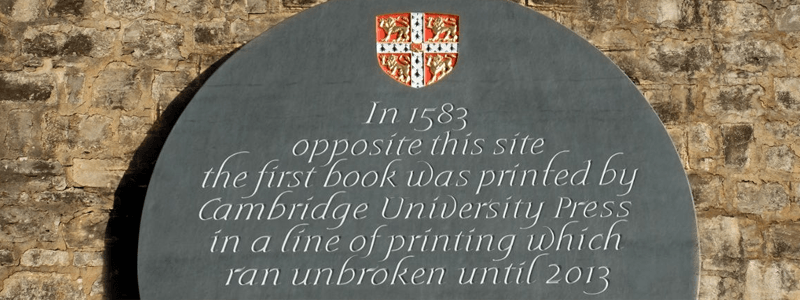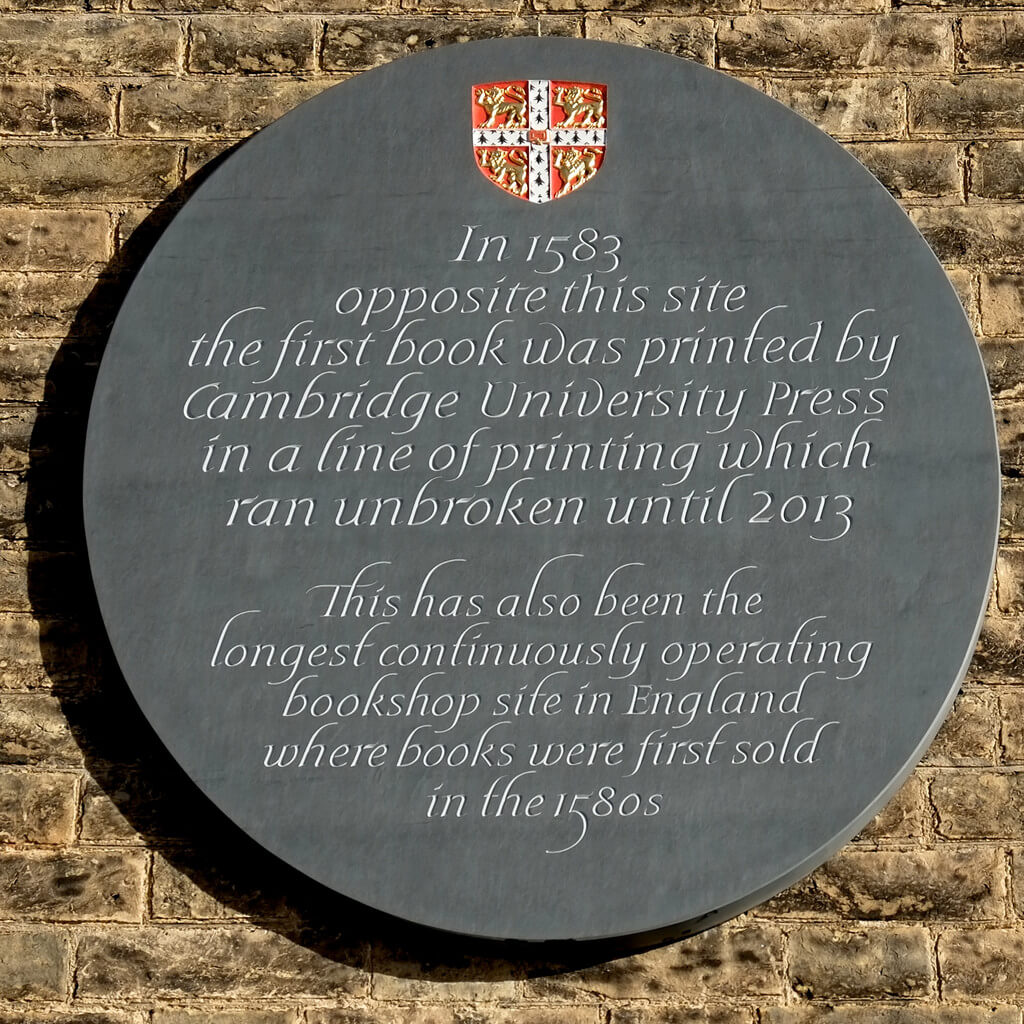Share
Recently, quite out of the blue, I happened upon this plaque on an elegant building in Cambridge city centre.

As it suggests, Cambridge University Press is one of the best established and venerated book publishers in history. Netex is now creating some great elearning for them. Seeing the plaque on the wall really brought it home to me how big a step this is.
Cambridge University Press has been publishing books for over 430 years. It will, I am sure, continue to do so for many to come. Cambridge represents the highest standards when it comes to producing text books and other learning orientated publications. It follows that no organisation of its standing would embrace elearning without first satisfying itself that it would add the best possible value to its portfolio of products.
This is almost certainly why it is now making those steps rather than venturing down the simple page/click route that other organisations started down some years earlier – a method which some claim almost blocks the learning path rather than enhance it.
It is of course the emergence of new tools to create, deliver and absorb that now makes formal elearning far more than it was a few short years ago. Our iPads and smartphones combine with new soft technologies like xAPI and HTML5 to enable us to create something more powerful and easily available to us than we could ever have dreamt about just a few short years ago.
Netex is proud to be an organisation that drives innovation in learning via technology. That innovation is crucial to both learners and the real keepers of our great learning tracts such as Cambridge. Today’s innovators are cutting the keys to unlock those huge libraries of knowledge yet unavailable but waiting the right tools to show them at their best. It is a process, which is still far from over, if it ever will be. But getting it right – and encouraging that innovation is both exciting and important. And if you don’t believe me, take another look at that plaque. Remind yourself that you are witnessing perhaps the biggest change a history of learning that for over 430 years.
Share

